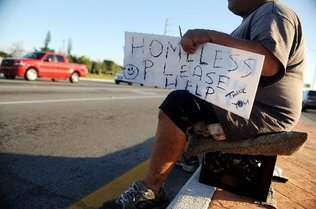Fighting Homelessness in Miami
By Stephanie Berman
In 1993, a group of business and civic leaders at the Greater Miami Chamber of Commerce set out to curb Miami-Dade County’s growing number of homeless individuals. Their concerns led the chamber to form a Homeless Committee with the purpose of creating a long-term solution for eliminating homelessness.
That committee ultimately evolved to become Carrfour Supportive Housing, which is now Florida’s largest nonprofit developer of affordable housing. Carrfour has provided permanent homes and supportive services to more than 10,000 formerly homeless families and individuals over the past 20 years.
Miami’s real-estate landscape has changed as much as that of any other major U.S. city over the past two decades. New condo towers have been built, cultural venues have risen, luxury hotels have been developed and new office buildings are filled with companies from around the world.
The critical need for affordable places to live in our community has been a constant in our city throughout this sea change.
Organizations like Carrfour and the Miami-Dade County Homeless Trust have gone to great lengths to reduce the size of Miami's homeless population, but there is still more work to be done.
Demand for affordable housing remains strong: Miami ranks as the nation’s least affordable major city, according to the Center for Housing Policy. Meanwhile, funding for new developments is being scaled back at the local, state and federal levels just as the cost of building affordable communities rises.
Working in tandem with peer developers, institutional sponsors and other community groups, we have demonstrated that a public-private approach to reducing homelessness can make a measurable impact.
The most recent census by the Homeless Trust found that the goal of eradicating homelessness in our community is within reach. Miami’s homeless resident count is now around 500, down from 8,000 in the early 1990s when Carrfour was founded.
Our work goes far beyond providing shelter. The supportive services we provide help ease the transition back into society for hundreds of combat veterans, connect thousands of residents with new jobs and assist countless disabled members of our community with everyday needs.
Fortunately for our neighbors in need, viable solutions for ending homelessness do exist. Additional investment in affordable housing on the part of the public and private sectors will ensure everyone in our community has access to a safe, affordable place to call home and a quality of life that makes them proud.
Stephanie Berman is president and CEO of Carrfour Supportive Housing.
JAN

